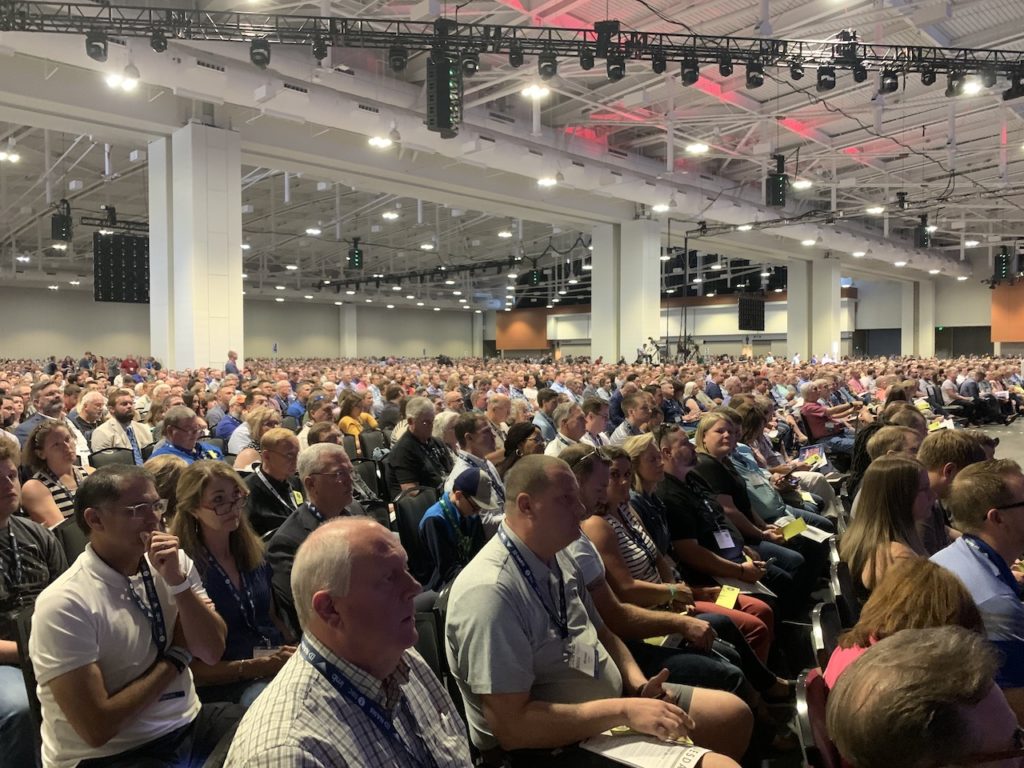
When Jules Woodson’s youth pastor coerced her into a sexual act, she reported it to her church within 24 hours. She went to his boss, the associate pastor.
“As I’m sitting there in tears, he stops me,” she recalls. “He says, ‘So you’re telling me you participated?'”
She was just 17. She was told to keep quiet: The church would handle it. When nothing happened, she told some friends, who told their parents. Eventually, the senior pastor had to deal with it. This was 1998, outside Houston.
The youth pastor was allowed to resign. The public line was that he’d made a mistake. Woodson says he was even thrown a going-away party.
“They blamed me. They silenced me,” she says. “And they failed to report it to the police.”
Her abuser would go on to another church in Memphis. He resigned in 2018, soon after Woodson went public with her assault.
Southern Baptists have been thrown into a week of soul searching as a third-party investigation uncovered widespread sexual abuse among ministers that’s been tracked and concealed for decades. For some, it’s been a time to revisit the chance of ordaining women or installing them in other leadership positions within the male-dominated hierarchy.
As survivors of abuse in Southern Baptist churches come forward, it’s almost always a man who decides how things will go, and that’s by design. The denomination’s policies reserve the role of pastor for men, citing New Testament scripture.
But there was a time when the nation’s largest evangelical Protestant denomination was on a path toward ordaining women.
“I’m the first and last woman who did a Ph.D. in preaching from a Southern Baptist school — like, in the world,” says Rev. Amy Mears of Glendale Baptist Church in Nashville.
She studied at the flagship Southern Baptist Theological Seminary in Louisville. But the door she opened quickly shut behind her as conservatives retook control of the denomination bit by bit.
Glendale dissolved ties with the Southern Baptist church even before Mears became one of its two lead pastors — both women — 18 years ago. She says sexual abuse can happen in any kind of organization, no matter who’s in charge. But men are far and away more likely to be the perpetrators.
“I think systems that are founded on white, heteronormative patriarchy are just sitting ducks for this kind of explosive, heinous sexual abuse scandal that we’re now seeing in the Southern Baptist Convention,” she says. “It’s not a surprise to hardly any of us.”
Southern Baptists will be gathering in Anaheim for their annual meeting in two weeks. This is where church representatives would vote on something like a proposal to revisit the restrictions on women in leadership.
Texas pastor Bart Barber is in the running to be the next church president. He says women should be given authority to handle abuse reports.
“I do think this crisis is a reason for us to make change,” he tells WPLN News.
But he says there’s no need to upend Southern Baptist doctrine on male leadership: “I don’t think it’s a reason for us to make that change.”
For those who watch the SBC closely, they say it’s hard to imagine the denomination’s male leaders giving up power.
“They’re not going to invite feminists like me in to say, let’s talk about how gender works,” says professor Susan Shaw, who teaches gender studies at Oregon State University. She trained at a Southern Baptist seminary.
Shaw researches and writes about Southern Baptist women, though she’s not one anymore.
“I don’t think that this is going to create an opening,” Shaw says. “I think there will be a lot of hand-wringing.”
She says those, like her, who have more progressive views may find their only option is to leave.

